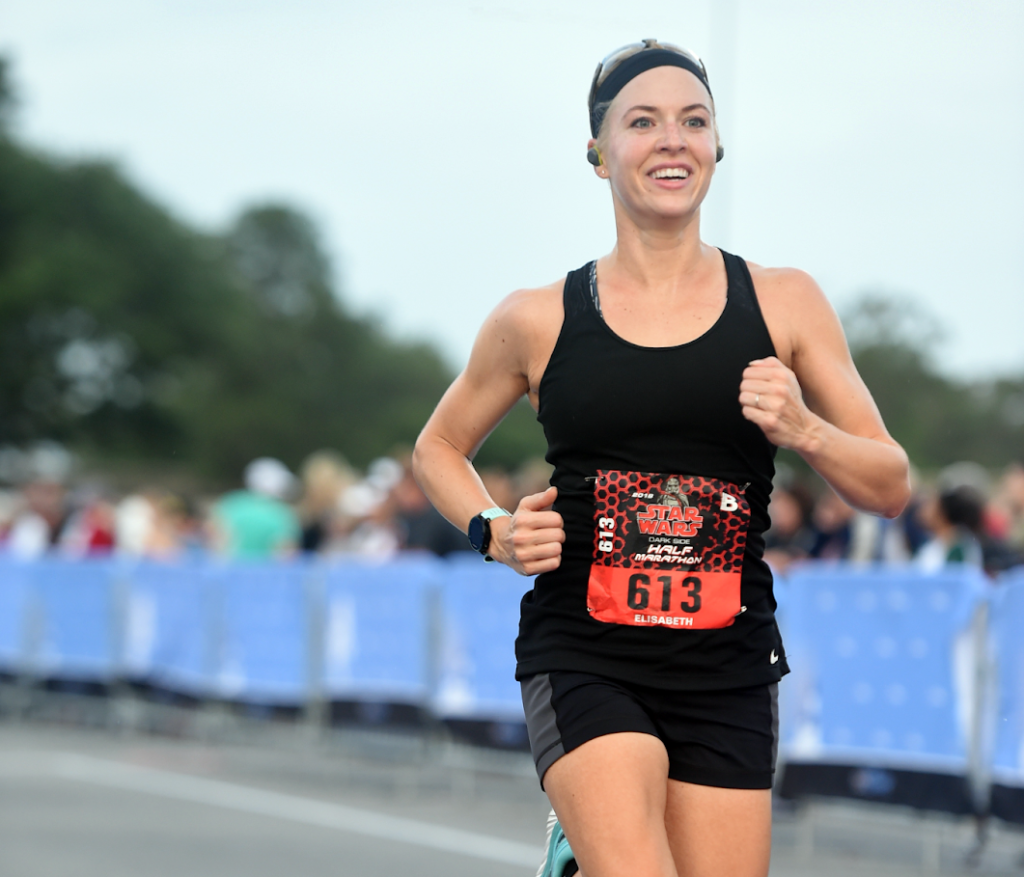Learning the nuances of pacing takes time and experience (and runners often think that harder is better). But all runners can learn how to pace appropriately with advice from coach Elisabeth Scott.
Whether you’re a new or experienced runner, figuring out how to pace the many different types of runs in your training plan can be a challenge:
- When should I run easy?
- How do I know if I’m running easy enough?
- And how hard should I push myself, how often?
- When it comes to 26.2 miles, how do I figure out marathon pacing?
Pacing can be especially difficult for beginners, as every run may feel a little uncomfortable when you are first starting out.
Getting your pacing right is important, since running too hard, too frequently can lead to burnout or injury. Learning when to push and when to recover seem like basic concepts, but pacing mistakes are common among runners.
Whether you’re running by heart rate or perceived effort, zone 2 (roughly 60-70% of maximum heart rate) is where runners should spend most of their time. This is a zone that feels like a light effort where you could continue running for an extended duration. While it may be easy to calculate, runners often struggle to find the appropriate effort to stay in this training zone.
Fortunately, there are ways for runners of all levels to learn better pacing skills. Tuning into your body, your breathing, and your effort are all key, and for some a heart rate monitor can help provide objective feedback to reinforce how you’re feeling.
Elisabeth Scott on easy running, pacing, coaching, and more
This week’s guest is Elisabeth Scott, host of the incredibly popular podcast, Running Explained. She is the founder and head coach at Running Explained and holds certifications from RRCA, USATF, and UESCA. As a coach and podcaster, her goal is helping runners of all abilities learn more about the sport, and become stronger, faster runners.
Elisabeth and I discuss a number of questions taken from my Instagram page, so this is an episode that you helped to develop! Our focus is on a variety of pacing strategies, ideas, and perspectives so you can learn how to pace your training runs more effectively.
Pacing can be tricky, but our conversation should help make the subject a little less complicated. Our in-depth discussion includes the following topics:
- Understanding the ratio of hard to easy mileage for your day-to-day runs
- How to determine training paces, and the pitfalls of pace calculators
- Why easy is an effort, not a pace
- How fitness helps you add “gears to the bike,” and give you a bigger range of training zones
- Why recovery is an essential part of your training, and you lose fitness much less quickly than you think
- How to decide if and when you need a coach
Elisabeth Scott is all about sharing useful, insightful knowledge to make you a better runner. I hope you enjoy my conversation with a fellow coach and podcaster as much as I did!
Subscribe to the podcast in iTunes, Spotify, Stitcher, iHeartRadio, or Google Play.
Links & Resources from the Show:
- Visit Elisabeth Scott’s website
- Check out the Running Explained Podcast
- Follow Elisabeth on Instagram and Facebook
- Follow Jason on Instagram
- Learn more race pacing strategies
- Can I help with your training?
Thank You InsideTracker!

This episode is brought to you by InsideTracker, one of the most reputable blood testing companies in the world. They were founded in 2009 by aging, genetics, and biometrics scientists to help you analyze your body’s data and get a firm idea of how well you’re responding to training.
Understanding your body’s biomarkers, from stress hormones to testosterone to Vitamin D, can help you figure out if you’re over-training, under-training, optimally training, or if you have a health issue that might be affecting your running. But the best part is that they give you personalized optimal ranges for each of these biomarkers and a host of ways to improve these markers through diet, lifestyle, or exercise changes.
I’ve personally gotten three Ultimate tests from them and the process is simple, easy, and very eye-opening if you haven’t done a deep dive on your biomarkers yet. Of all the investments you can make in your running, this one is like getting a detailed checkup or regularly scheduled maintenance for your internal physiology.
If you’re ready to take control of your health and optimize your training, get 25% off any of their blood tests with code STRENGTHRUNNING at InsideTracker.
Thank You Athletic Greens!
Thank you to our sponsor, Athletic Greens! They are a health and wellness company that makes AG1. This is a category-leading greens mix that has 75 vitamins and minerals, prebiotics, probiotics, antioxidants, and adaptogens.
One scoop per day is what I’ve been doing to help me fill in any nutrition gaps in my diet. It also provide a nice boost of energy and focus throughout the day. With all 3 of my kids in school, I know I need to support my immune system or else I’m getting sick and can’t train.
I also love that AG1 has changed over the last decade. Athletic Greens has made 53 improvements to the formula based on the latest research to make these nutrients more absorbable.
For our listeners, they are offering a year’s worth of free Vitamin D and 5 free travel packs of AG1 with your first purchase. You can sign up for single shipment or for a monthly drop – the choice is yours. Check out Athletic Greens to redeem your offer today.
